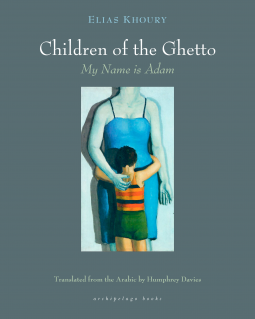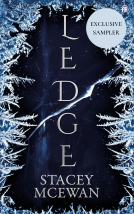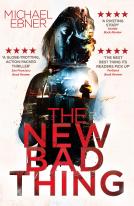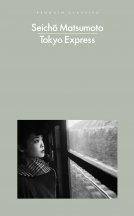
The Children of the Ghetto: I
My Name is Adam
by Elias Khoury
This title was previously available on NetGalley and is now archived.
Send NetGalley books directly to your Kindle or Kindle app
1
To read on a Kindle or Kindle app, please add kindle@netgalley.com as an approved email address to receive files in your Amazon account. Click here for step-by-step instructions.
2
Also find your Kindle email address within your Amazon account, and enter it here.
Pub Date 10 Jun 2019 | Archive Date 18 Mar 2019
Talking about this book? Use #TheChildrenOfTheGhetto #NetGalley. More hashtag tips!
Description
Weaving history, memory, and poetry, this unforgettable novel—and the 1st book in a trilogy—provides a sprawling memorial to the Nakba and the strangled lives left in its wake.
Long exiled in New York, Palestinian ex-pat Adam Dannoun thought he knew himself. But an encounter with Blind Mahmoud, a father figure from his childhood, changes everything. It is when Adam encounters his former teacher that Adam discovers the story he must tell.
Ma’moun’s testimony brings Adam back to the first years of his life in the ghetto of Lydia, in Palestine, where his family endured thirst, hunger, and terror in the aftermath of unspeakable horror.
With unmatched literary craft and empathy, Khoury peels away layers of lost stories and repressed memories to unveil Adam’s story.
Oscillating between two narrators—the self-reflexive "Elias Khoury" and Adam himself—Children of the Ghetto: My Name is Adam engages real (and invented) scholarly texts, Khoury’s own work, and Adam’s lost notebooks in an intertextual account of a life shadowed by atrocity.
Advance Praise
"There has been powerful fiction about Palestinians and by Palestinians, but few have held to the light the myths, tales and rumors of both Israel and the Arabs with such discerning compassion. In Humphrey Davies' sparely poetic translation, Gate of the Sun is an imposingly rich and realistic novel, a genuine masterwork."--New York Times Book Review "Khoury is one of the most innovative novelists in the Arab world."--Washington Post Book World Praise for Elias Khoury: "Elias Khoury is an artist giving voice to rooted exiles and trapped refugees, to dissolving boundaries and changing identities, to radical demands and new languages."--Edward W. Said "We need the voice of Elias Khoury--detailed, exquisite, humane--more than ever. Read him."--Naomi Shihab Nye "A writer of panoramic scope and ambition."--Azadeh Moaveni, Financial Times
Available Editions
| EDITION | Other Format |
| ISBN | 9781939810137 |
| PRICE | US$25.00 (USD) |
| PAGES | 400 |
Featured Reviews
Khoury's story is both heartbreakingly haunting and needs to be told, however, the length of the novel could be shorter; some literary devices - the layering of the narrative - are never revisited whilst others - themes such as silence - come up more than once, in true stream of consciousness style.
"[...] literature exists without reference to any meaning located outside it, and I want Palestine to become a text that exists without reference to its current historical conditionality, because, based on my long experience of that country, I've come to believe that nothing lasts but the relationship to the adim - the skin - of the land [...]"
During the aftermath of the 1948 Arab-Israel War, the residents of the city of Lydda (now Lod) were forced to leave their homes. Later, those homes would house Jewish refugees, themselves displaced from their homes in Bulgaria. But a few Arabs, Muslim and Christian, stayed behind in Lydda and were gathered together into what the soldiers guarding them called a ghetto. <i>Children of the Ghetto: My Name is Adam</i> by Lebanese author Elias Khoury and translated by Humphrey Davies, tells the story of one boy, the first child born into this new version of Lydda.
The novel begins with a long introduction from a university professor in New York named Elias Khoury, who met Adam briefly and disliked him intensely, mostly because they shared a romantic interest in the same woman but also out of consternation. Adam Dannoun is the cook in a falafel restaurant, well-educated and well-spoken, but he speaks both Arabic and Hebrew like a native. When Adam dies, the woman brings a stack of notebooks to Elias. She had been instructed by Adam's will to destroy them, but finds herself unable to do so. Elias, upon reading the notebooks, initially wants to write a novel based on the contents, but decides instead to submit them as they are for publication.
What follows begins as what one might find in the private notebooks of a scholar, a series of abortive attempts at writing the story of a Yemeni poet during the time of the Caliphates, followed by a rambling entry about his life in general, but all of this is necessary to the meat of the novel, Khoury taking his time to set up ideas and the life of this first witness before leading into what life was like for the people who stayed behind in Lydda, after most of the people had fled.
This was a powerful and understated novel about a part of the world whose history I know too little about. Khoury's slow and meandering style was wonderful and I'll be reading more by this author.






